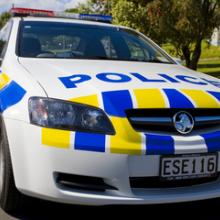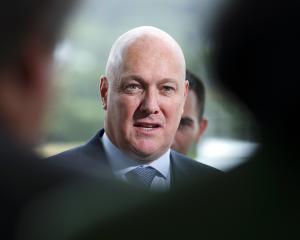
Prime Minister Bill English announced police will receive 1125 additional staff over four years, including 880 extra sworn police officers. The package would increase total police staff numbers to more than 13,000 from 11,925 by June 2021, and total sworn police numbers to nearly 9800 from about 8900.
The package also focuses on the Ministry of Justice and Department of Corrections and includes a $115million funding boost to support crime prevention. That funding is to provide more resources for Corrections' rehabilitation and reintegration programmes, a $16million increase in legal aid, $21million to support district courts to handle more cases and $9million for more judges.
Mr English said the changes were about ``doing things smarter''.
The announcement, a day after Mr English confirmed September 23 as the election date, has not surprisingly been labelled an election year stunt by opposition parties. However, all conceded any additional support for policing was overdue.
Labour leader Andrew Little accused the Government of playing catch-up after failing to invest in policing for eight years. Labour last year pledged to provide 1000 extra police if elected.
While the package covers a wide array of new measures, actual detail about the initiatives has yet to be revealed.
A 24-hour phone number for non-emergencies will be established sometime next year; 140 more officers will be assigned to regional and rural police stations and additional specialist investigators for child protection, sexual assault, family violence were among measures announced.
It sounds positive but the devil will be in the detail.
Mr English's ``doing things smarter'' approach is a well-worn catchcry but one the Government must heed if it wants to address the recent rise in crime and, particularly, the growing problems associated with methamphetamine use.
Although recorded crime had fallen since 2009, it has started to increase again over the past two years - particularly burglaries, robberies and assaults.
The South is not immune. Late last year the Police Association voiced concern about significant increases in public assaults and attacks on police in the Southern district. It was, the association believed, a symptom of an already stretched police force.
There had also been concerns voiced from civic leaders about a lack of police presence on the streets. Police management dismissed such claims, saying police had a ``prevention first'' approach.
Boosting police numbers is positive but it is imperative these additional resources are used properly and where the public can see them. It should mean more police are visible on the streets and responding quickly to public calls for assistance, not tucked away behind a desk in the local station.
For police officers an increase in staff numbers, particularly frontline staff, will be a relief.
When staffing is tight it is invariably the frontline staff - those working rostered shift work and out on the streets - who bear the brunt. Section numbers are gradually eroded or officers are hauled off section to temporarily fill gaps elsewhere in the system.
While management are quick to ally any fears about frontline police numbers, the public would be surprised - if not shocked - at how few frontline police are available to patrol city streets during some shifts.
As taxpayers, the public deserves better.












